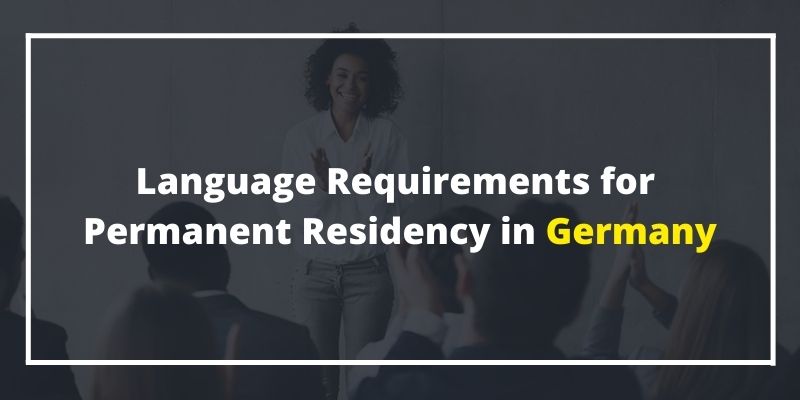
Language requirements for living in Germany permanently.
There are more than one ways for a foreigner to live in Germany for good.
Even though there is a lot of paperwork, the immigration law gives you choices.
If you do not belong to a European Union citizen but have lived in Germany with a short time residence permit for at least five years, you can apply for a permanent residence permit.
But how well do you speak German to get this Settlement Permit?
Don’t worry. We’ll explain how to apply, what language skills you need, and the special case of people with a “Blue Card.”
Learn about german pr requirements and improve your German language proficiency by fetching yourself in German Classes in Chennai.
What is the German permit for living there?
Non-EU citizens have two main ways to enter and live in Germany, which are reflected in the German Immigration Act by two titles.
The “Aufenthaltserlaubnis” is a temporary document that can be given for things like work, training, family reunification, or legal or political reasons.
The settlement permit (“Niederlassungserlaubnis”) is always good, and after a certain amount of time, it lets you work and move freely within the EU. You can request a permit to live there if you meet the requirements.
What must be done to get the settlement permit?
If you are not a member of the European Union, you need a visa to enter Germany for the first time. When you get there, the visa turns into a permit. If you have a five-year temporary permit, you can get a permanent one. You also need a stable income, no criminal record, good language skills and a place to live.
Here’s a full list of things to check off:
- You’ve had a temporary residence permit in Germany for at least 5 years.
- You can take care of yourself without public money or help from the government.
- You have paid into the mandatory pension insurance fund (“Rentenversicherung”) for at least 48 months.
- You meet the requirements for a job.
- Your living situation and that of your family are good enough.
- You passed a “Life in Germany” test to show you know about the country’s laws, social structure, and way of life.
- You know enough German to be able to communicate.
Sign up for the Online German Language Course to improve your German proficiency.
German language requirements for permanent residence in Germany
Now you may be astonished; what is necessary for German skill application? In short, you need a B1 level of German to live in Germany permanently, which is the same as being an intermediate learner.
The CEFR is a set of standards for how well European people learn foreign languages. If you pass an exam, you can get a certificate that shows you can speak a language at the B1 level.
Skills at the B1 level show that you can:
- You can understand texts and conversations in German with clear and standard language. You can understand the main points of information about work, school, family, free time, and other similar things.
- Handle everyday situations in countries where German is spoken.
- Talk in simple, clear language about things you know well or things that interest you.
- Give statements, explanations, and stories about events and experiences, and talk about yourself and your life.
The process of applying for permanent residence in Germany
The place to talk to is the immigration office. You can make an appointment online, over the phone, or in person. “Antrag auf Erteilung der Niederlassungserlaubnis” is the application form you need, which you can fill out ahead of time. Check the list below to see what else you need to get ready. During your interview, you will be questioned a few queries about your situation in a short interview. There is a standard fee. It will take up to a few weeks to process your application.
When you apply for a settlement permit, make sure to bring these things:
- Completed application form (“Antrag auf Erteilung der Niederlassungserlaubnis”)
- Proof that you have health insurance and have paid into social security for at least 60 months. Your insurance company will give you this.
- A valid passport
- A certificate that says you can speak German at least at the B1 level
- A biometric picture
- Bank statements that show you are financially stable are good proof.
- A letter from your employer or university
- “Anmeldungsbestätigung” proves that you are registered and have a place to stay.
So far, we have discussed how to get permanent residence in Germany. To get additional information and guidance, upgrade yourself by joining German Classes in Coimbatore at FITA Academy, which improves your German language skills.
